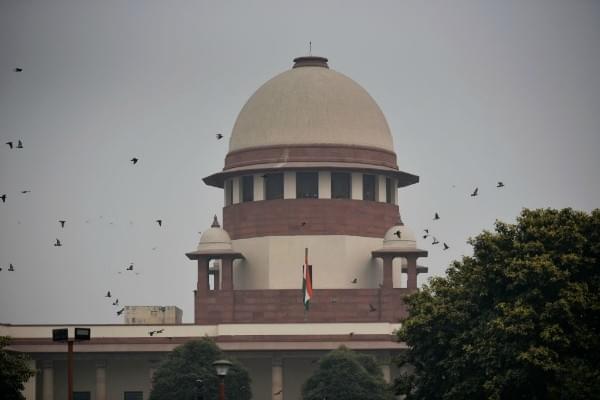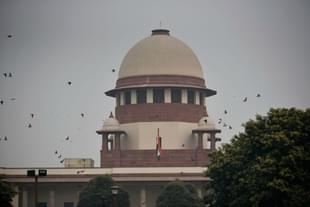Politics
Chief Justice May Be In No Hurry Over Ayodhya, But One Can Hope For Verdict By Mid-November
R Jagannathan
Jan 10, 2019, 01:49 PM | Updated 01:48 PM IST
Save & read from anywhere!
Bookmark stories for easy access on any device or the Swarajya app.


The decision of Justice U U Lalit to recuse himself from the Ayodhya Constitutional bench following concerns over conflicts of interest, raised by a lawyer for the Muslim groups, has ensured a further delay in hearings by another 19 days to 29 January.
Justice Lalit had apparently appeared on behalf of Kalyan Singh, the chief minister of Uttar Pradesh when the masjid (mosque) was brought down in 1992, in some earlier case before Lalit was elevated to the Supreme Court. His exit means that the bench will again have to be reconstituted, and the process of setting a schedule for the hearings will have to wait till the end of this month. Actual hearings may begin only in February, if not later.
The Muslim side, which has already flagged concerns over the lack of a Muslim judge on the bench, probably wants some delay, and the Congress party clearly would be happy if that happened. Kapil Sibal, appearing for one of the petitioners, had called for postponing the hearings till after the general election in 2019, and this timeline is now turning out to be true.
Under the new Chief Justice of India (CJI), Ranjan Gogoi, the Ayodhya issue has already been given a lower priority than under his predecessor, Dipak Misra. In October, CJI Gogoi gave no assurances that the hearings would be fast-tracked and, in fact, emphasised that he had his own priorities. He said as much: “We have our own priorities… whether hearing would take place in January, March or April would be decided by an appropriate bench.” And with the appropriate bench yet to be finally constituted, clearly there is no hurry at the judicial end.
We are unlikely to get any verdict before May 2019, but one can hope for one by mid-November 2019, when CJI Gogoi retires. Usually, when critical cases are heard by multi-judge benches, an effort is made to deliver judgements before any judge retires, so that cases don’t have to be heard all over again.
It may be recalled that many key judgements in benches headed by the previous CJI – on Sabarimala, Aadhaar, and the size of the Ayodhya bench – came in a rush towards September-end 2018, just days before CJI Misra retired.
The Supreme Court will be in no hurry to deliver a verdict before the Lok Sabha election, as it is aware that it could impact the results, especially in the northern states. The last thing the bench would want, even after it is reconstituted, is to be stuck with the suspicion that it was trying to deliver a verdict keeping the election in mind. And that is a good thing.
Jagannathan is former Editorial Director, Swarajya. He tweets at @TheJaggi.





